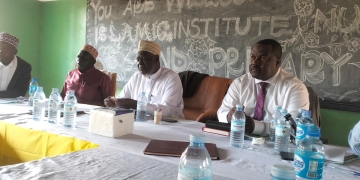
Climate change is one of the most pressing challenges of our time, impacting economies, ecosystems, and societies worldwide. Uganda, like many other nations, is grappling with the profound effects of climate change, which threaten its agricultural productivity, water resources, and overall development trajectory. In response, Uganda has developed the National Climate Change Policy (NCCP), a pivotal framework guiding the nation’s climate action agenda. This article examines the Uganda National Climate Change Policy, explores the challenges of implementation, and provides illustrative examples to highlight its progress and limitations.
The Uganda National Climate Change Policy (NCCP), launched in 2015, aims to address the country’s vulnerability to climate change and enhance its adaptive capacity. The policy aligns with Uganda’s Vision 2040, which seeks to transform the country into a middle-income economy. The NCCP emphasizes mainstreaming climate change into development planning, ensuring sustainable economic growth while mitigating and adapting to climate impacts.
To reduce vulnerability to climate change impacts, the NCCP aims to enhance adaptive capacity across sectors and communities. It promotes low-carbon development pathways and reduction of emissions in energy, agriculture, forestry, and waste management. The policy focuses on building institutional frameworks for effective climate governance and ensuring policy coherence. It also seeks to increase awareness of climate change and build capacity at individual, institutional, and community levels, while mobilizing resources for climate action from domestic and international sources.
The NCCP outlines several strategic interventions to achieve its objectives, including integrating climate change considerations into national and sectoral policies, plans, and budgets. It invests in solar, wind, and hydropower to reduce dependence on biomass and fossil fuels. Sustainable land management practices, such as soil conservation and agroforestry, are promoted to protect agricultural productivity. The policy also emphasizes developing infrastructure and policies for sustainable water resource use and distribution. Early warning systems are strengthened by improving meteorological services and disaster preparedness mechanisms.
Despite its comprehensive framework, the implementation of the NCCP faces numerous challenges that hinder its effectiveness. Uganda’s climate change initiatives are often underfunded, relying heavily on donor support. Limited domestic resources constrain the ability to execute large-scale adaptation and mitigation projects. For example, renewable energy projects and infrastructure development often stall due to insufficient financial backing.
The institutional framework for climate change governance in Uganda faces capacity limitations, including inadequate technical expertise and coordination challenges among government agencies. Local governments, which play a crucial role in implementing climate action, often lack the necessary resources and skills. Many communities in Uganda have limited awareness of climate change and its impacts. This hampers local participation in climate action initiatives. For instance, farmers may resist adopting climate-smart agricultural practices due to lack of knowledge or perceived risks.
While the NCCP advocates for mainstreaming climate change into all sectors, achieving policy coherence remains a challenge. Conflicting priorities among sectors, such as energy development versus environmental conservation, often undermine climate goals. Uganda’s heavy reliance on natural resources, including agriculture and forestry, increases its vulnerability to climate change. The degradation of these resources exacerbates the impacts of climate variability, making it difficult to build resilience.
Uganda has made strides in promoting renewable energy, with initiatives such as the Bujagali Hydropower Project contributing to the nation’s energy mix. However, projects like these often face delays and funding challenges, highlighting the need for stronger financial and institutional support. The adoption of climate-smart agricultural practices, such as conservation agriculture and agroforestry, has shown promise in enhancing food security and resilience. Programs supported by international organizations, such as the Climate Resilient Agriculture Program, have benefited smallholder farmers. However, scaling these practices remains a challenge due to limited reach and resources.
Afforestation initiatives, such as the National Tree Planting Campaign, aim to restore degraded landscapes and sequester carbon. While these programs have achieved some success, they face challenges related to land tenure disputes and community engagement. In regions like Karamoja, water scarcity has been addressed through the construction of valley tanks and boreholes. These interventions have improved water access for livestock and agriculture. However, climate variability continues to strain water resources, necessitating more robust water management strategies.
To address the challenges and enhance the effectiveness of the NCCP, Uganda can explore opportunities such as establishing dedicated climate finance mechanisms to ensure sustainable resource allocation for climate action. Strengthening institutional and technical capacity at all levels, particularly in local governments, can improve implementation. Increasing awareness and participation through community-based programs and education campaigns can foster ownership of climate initiatives. Encouraging private sector investment in renewable energy and sustainable practices can complement government efforts. Collaborating with neighbouring countries on shared challenges, such as transboundary water management, can enhance resilience.
The Uganda National Climate Change Policy represents a critical step toward addressing the multifaceted impacts of climate change. While significant progress has been made, challenges related to funding, institutional capacity, and public awareness must be addressed to achieve the policy’s ambitious goals. By leveraging opportunities for improvement and fostering collaborative efforts, Uganda can enhance its resilience and contribute meaningfully to global climate action.
The writer, Hellen Masika, is a Community Mobilizer at Centre for Citizens Conserving Environment & Management (CECIC)





![Cover photo of the podcast Stories of Xi Jinping]](https://i0.wp.com/www.ugstandard.com/wp-content/uploads/2025/12/wrwr.jpg?resize=120%2C86&ssl=1)




